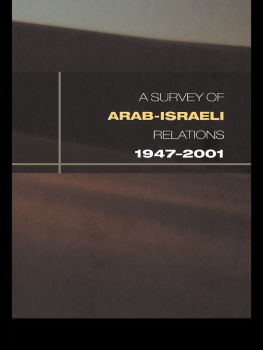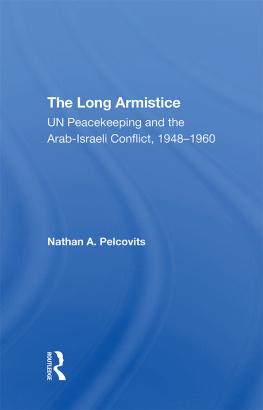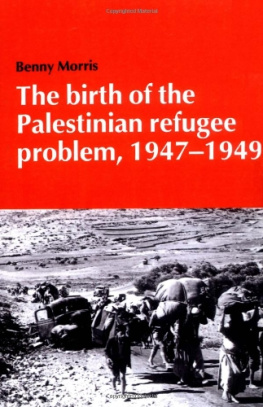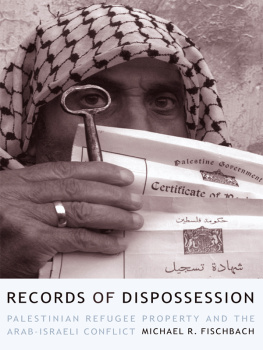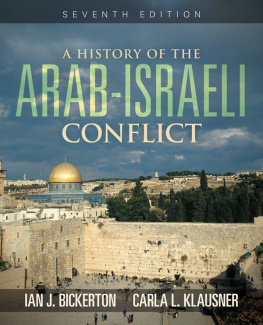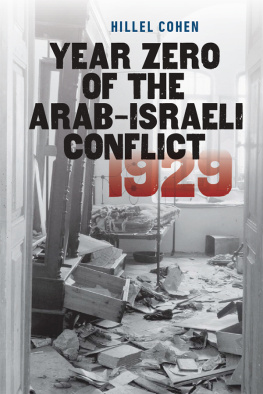Benny Morris






For Eliya, Stay, Ayala, and Zohar
DAVID
Marie Syrkin


I thank my blood brother, Professor Beni Kedar, for reading the manuscript and for suggesting corrections and additions. I also thank Dr. Hillel Cohen for going through Palestine's Arabic newspapers from 1947 to 1948 for me and enlightening me on their contents.
I thank the University of Maryland, and especially Professor Haim Lapin of the history department and Jewish studies program, for providing me with a yearlong fellowship that enabled me to complete much of this book in College Park during 2005 -2006.
Over the years, I have consulted my friend and colleague Yoav Gelber about this or that aspect of 1948, and he has always been generous with his time and knowledge.
I extend my thanks to Georges Borchardt for steering this work through the shoals of the publishing world to the safe and proven shores of New Haven and, at Yale University Press, to Jonathan Brent for taking me aboard and to Annelise Finegan for chaperoning the work through the production process. Working with them was a rare pleasure, as was working with Laura Jones Dooley, who brought great skill and experience to the editing.
Great thanks go also to Roni Bluestein-Livnon for her industry and care in making the maps; the fruit of her labor was crucial to the book.











The War of 1948 was the almost inevitable result of more than half a century of Arab-Jewish friction and conflict that began with the arrival in Eretz Yisrael (the Land of Israel), or Palestine, of the first Jewish immigrants from Eastern Europe in the early 188os. These "Zionists" (Zion, one of Jerusalem's hills, was, by extension, a biblical name for Jerusalem and, by further extension, a name for the Land of Israel) were driven both by the age-old messianic dream, embedded in Judaism's daily prayers, of reestablishing a Jewish state in the ancient homeland and by European anti-Semitism, which erupted in a wave of pogroms in the czarist empire. The nineteenth-century surge in national consciousness, aspiration, and development in Italy and Germany, Poland, Russia, and the territories of the multinational AustroHungarian Empire provided an intellectual backdrop, inspiration, and guide to Zionism's founders.
The Jewish people was born in the Land of Israel, which it ruled, on and off, for thirteen centuries, between 1200 BCE and the second century CE. The Romans, who conquered and reconquered the land and suppressed successive Jewish revolts in the first and second centuries CE, renamed the land Palaestina (derived from the country's southern coastal area, named Pleshet, in Hebrew, or Philistia, in Latin, after its second millennium BCE inhabitants, the Philistines) in an effort to separate the Jews, many of whom they exiled, from their land. Among the Gentiles, the name Palestine stuck.
By the early nineteenth century, after centuries of Byzantine rule and suc cessive Persian, Arab, Crusader, Arab, and Ottoman conquests, Palestine was an impoverished backwater. But it had religious cachet for the three monotheistic faiths: it was the divinely "promised land" of the biblical "chosen people," the Jews; Jesus was born, preached, and died there; and the Muslim prophet Muhammad, according to an early interpretation of a line in the Qur'an, had begun his nighttime journey to heaven from Jerusalem, though the land was conquered for Islam only by his mid-seventh-century successors. Jews and Christians and, later, some Muslims, especially those living in Palestine, designated the country "the Holy Land."
But neither before the twelfth-century defeat of the Crusaders at the hands of the Muslim general Saladin nor after it was Palestine administered or recognized as a distinct and separate province by any of its Muslim rulers. The Ottoman Empire, which controlled the area from the early sixteenth century, divided Palestine into two or three subdistricts (sanjaks) that were ruled from the provincial capital of Damascus. From the i86os, the southern half of Palestine, from a line just north of Jaffa and Jerusalem southward, was constituted as an independent sanjak (or mutasaraflik) and ruled from Istanbul, while the northern parts of the country, the sanjaks of Nablus and Acre, were ruled from the provincial capitals of Damascus and, from the 188os, Beirut.



